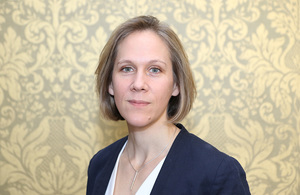Consultation to improve management of industrial emissions
A new consultation launched jointly by the UK and devolved administrations today (25 January) will seek views on developing world-leading measures to reduce industrial emissions.
The consultation sets out a possible process for developing new “Best Available Techniques” (BAT) to limit the environmental impact of polluting industries, such as paper production, waste incineration and ceramic manufacturers, to safeguard and build on the high levels of environmental protection in the UK.
BAT are techniques designed to prevent or minimise emissions and impacts on the environment as a whole. These can include using new technology to limit polluting emissions, or improving the way that new installations for medium and heavy industries are designed, built and operated.
As a former member of the EU, the UK previously adopted EU BAT for industrial emissions. Now the UK will be able to consider the best approach for our own needs, taking into account UK data as well as reviewing international developments.
The proposed measures seek to go further than the existing EU process by conducting a public consultation on every new BAT and making oversight of the development process more transparent and collaborative with industry. In addition, the government will establish the following groups:
- A Standards Council, made up of representatives from the UK and devolved governments to maintain alignment across the four nations.
- A new Regulators Group to provide expert technical advice to the Standards Council.
- Technical Working Groups for each new BAT under consideration, made up of sector experts from regulators and representatives from the relevant industries.
Environment Minister Rebecca Pow said:
“Outside the EU we can go further in developing a tailored UK regime for better protecting the environment and public health from industrial pollution.
“This consultation delivers on our commitment to agree a common approach for developing BAT across the whole UK, ensuring that we are at the forefront of reducing industrial pollution.
“A more transparent and collaborative BAT regime is crucial for maintaining our high environmental standards, working closely with industry partners. I encourage all those with an interest to take part in this consultation.”
The UK’s current BAT regime is prescribed by the EU’s Industrial Emissions Directive. We will assess feedback from all stakeholders before providing a response outlining a future policy position and next steps later this year.
Details of the consultation can be found on GOV.UK. The consultation will close for views on Sunday 18 April.
